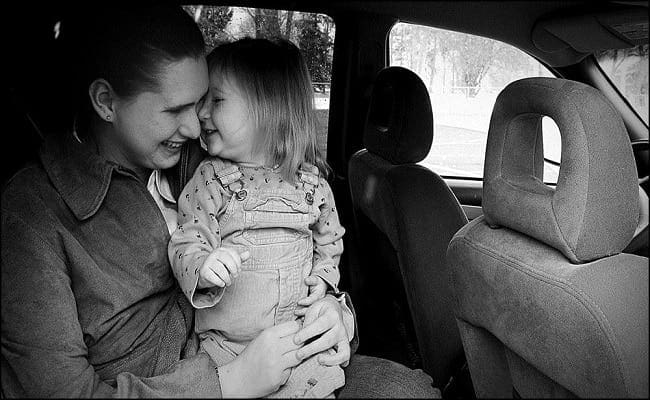You are considering adopting and have heard about needing to complete something called a “home study.” Some prospective adoptive parents get nervous just hearing those words, thinking it involves answering extremely personal questions and an invasion of privacy. But what exactly is a home study, and what does it entail? Agencies are not looking for “perfect parents,” but rather are looking to ensure that a family can meet the needs of a child. Read on to find out why a home study isn’t as scary as it may sound!

Photo Credit: Wikipedia
What Exactly is a Home Study?
In order to adopt, prospective adoptive parents are required to undergo a home study, which is an evaluation conducted by a neutral adoption agency or social worker, who ensures that the adoptive parent is fit to care for a child. At its core, the home study is meant to:
- Educate prospective adoptive parents about adoption and the process
- Prepare prospective adoptive parents for adoptee in the home
- Gather information about the prospective adoptive parents
Common Components of a Home Study
Because adoption is regulated by state governments and state laws regarding adoption vary, there is no set format that adoption agencies must follow to conduct home studies. Each agency may develop its own unique application, policies, and procedures within state regulations. For example, thirteen states require some type of family preparation training course and/or an orientation. However, most states require some common components of the home study, such as:
- Background Check: Have you or anyone in the household been convicted of a crime that would put a child at risk of harm?
- Health Statement: Do you have any health conditions prohibiting you from effectively parenting a child?
- Income Statement: Are you able to provide financially for the child, meeting the child’s need for food, shelter, and health coverage?
- List of References: Do you know 2-5 people who can speak to your character and how you would act as a parent?
- Home visit: Is your home is safe, comfortable for a child, and in compliance with building codes?
- Interview: Are you able to answer questions from a social worker regarding your family background, education/employment, relationships, daily life, parenting, religion/belief system, the neighborhood, your support system, your feelings about adoption, and your readiness for adoption?
- Autobiographical Statement: Are you able to write about your life story and explore issues related to parenting and adoption?
 Image Credit: Pixabay
Image Credit: Pixabay
So What Does This Really Mean?
Many think that the person conducting the home study will look for any tiny little detail as a reason to exclude you from adopting, but this is not the case! Professionals conducting the home study don’t expect you or your home to be perfect. Some examples of what they DO NOT expect are:
- A pristine home, but rather one that is clean and safe enough for a child
- Your home to be already baby-proofed, but rather that you are aware of any potential hazards in the home
- A nursery to be already set up, but rather that you have an appropriate space to raise the child and a designated room for the child
- A lavish home or sizeable incomes, but rather one that is able to meet the needs of a child
- A perfect record, but rather that no one in the home has been convicted of any crime that could put a child at risk of harm
- Perfect health, but rather that there are no physical or mental health conditions that could interfere with appropriate child care
- A perfect parent, as there is no such thing!
Beginning the Home Study
It is important to be informed about your state’s home study requirements and the requirements of your state’s agencies. Even within a state and its regulations, agencies and social workers can develop their own policies, procedures, and even prices! Home studies that have more requirements, like classes and/or an orientation, are like to be longer processes and cost more than other home studies. If you are working with an agency, they may require the home study to be conducted by their agency. But if you are working with an adoption attorney, they can inform you about your state’s home study laws and provide referrals for home study agencies. There are many resources available for prospective adoptive parents, and we recommend speaking to your adoption professional for recommendations. For more information about the home study requirements in your state, click here.
If you are considering adoption, do not let anxieties about a home study deter you! Many fear that they will not meet the standards to adopt, but here is no such thing as a “perfect parent” in biology or adoption. Social workers and agencies conducting home studies want you to adopt! Ultimately, the home study is designed to protect the best interests of adopted children, while ensuring lifelong placement in a loving, healthy, and safe environment. The process exists in order to prepare you for adoption and determine whether adoption is the right fit for you.
Questions? Call 800-637-7999 to speak to our expert case workers!